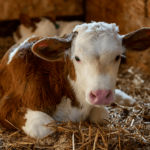
Seattle Public Utilities’ Initiative to Curb Waste and Address Hunger Issues
- foodfightadmin
- July 22, 2023
- Food Waste, Hunger In America
- resources latest july, rsc pages, rscl
- 0 Comments
In Seattle, the city’s public utilities are spearheading initiatives to tackle two pressing issues: food waste and hunger. Seattle Public Utilities (SPU), known for managing sewer, drainage, and waste collection, is channeling its resources into innovative programs aimed at making the city’s food systems more resilient and sustainable.
At the forefront of SPU’s efforts is the Food Rescue Innovation Program (FRIP), which brings together grocery retailers, hunger relief organizations, and local businesses. The program’s objective is to minimize food loss and waste in the Seattle area. Liz Fikejs, SPU’s Senior Waste Prevention Program Manager, emphasizes the need for systemic solutions, pointing out the confusion and waste caused by the lack of standardization in current practices.
A key initiative under FRIP is the introduction of the Food Rescue Bin. This project involves placing uniform, durable bins for food donations in retail sites. Fikejs notes that this approach not only improves the quality and quantity of food donations but also raises awareness among grocery store employees, leading to significant behavioral changes and increased staff engagement in food donation activities.
Alongside FRIP, SPU is also a key player in the Pacific Coast Food Waste Commitment (PCFWC). This ambitious public-private partnership aspires to halve food waste by 2030. The commitment encourages businesses to track their food loss and waste, providing specialized data collection tools tailored to the retail industry. Through the PCFWC, SPU facilitates working groups that identify challenges and opportunities for pilot programs aimed at food waste reduction.
An important aspect of the PCFWC is enhancing food rescue systems. Fikejs explains that while food rescue operations are typically handled by nonprofits, inefficiencies in these systems can result in food not reaching those in need. The commitment aims to bridge the gap between food donors and hunger relief organizations, establishing standards for grocery food rescue and fostering consistent measurement and tracking practices.
Fikejs emphasizes the adaptability of these best practices, noting that while a one-size-fits-all approach may not be feasible, the lessons learned in Seattle can be tailored to fit the needs of other cities and grocery retailers. Through these initiatives, SPU is not only addressing food waste and hunger in Seattle but also setting a model for other cities to follow in creating more effective and sustainable food systems.








